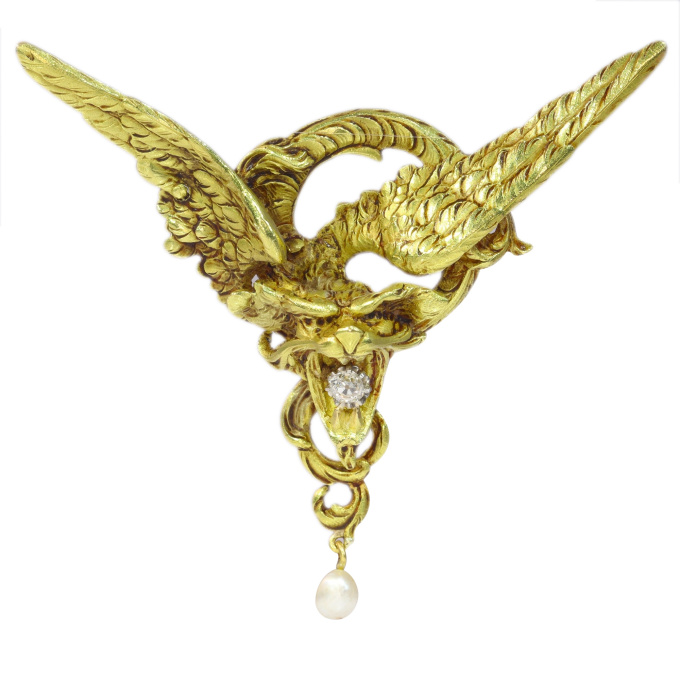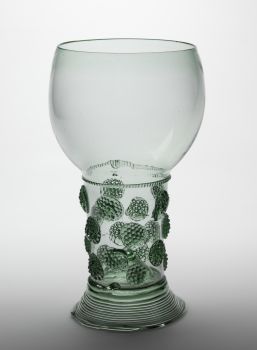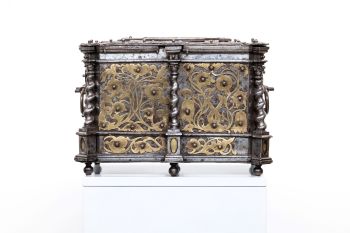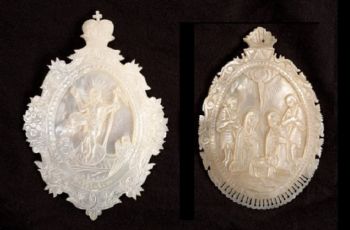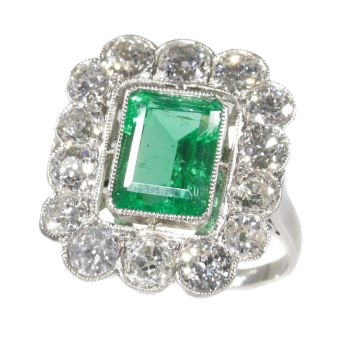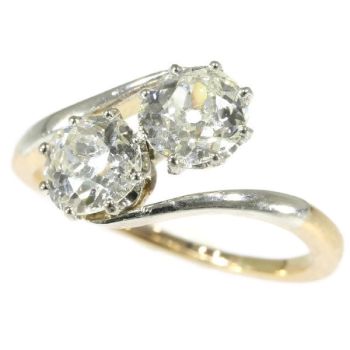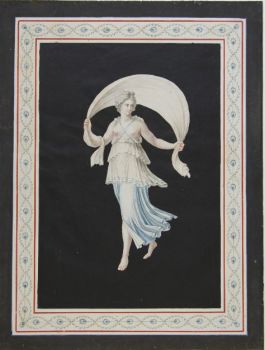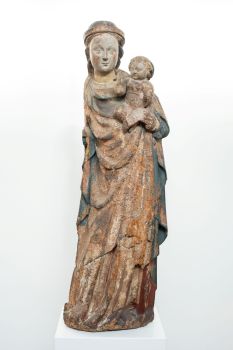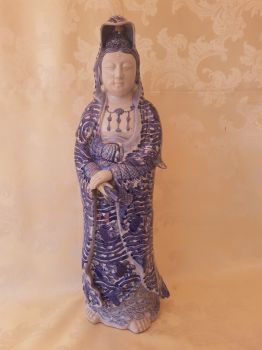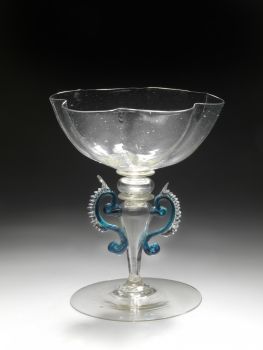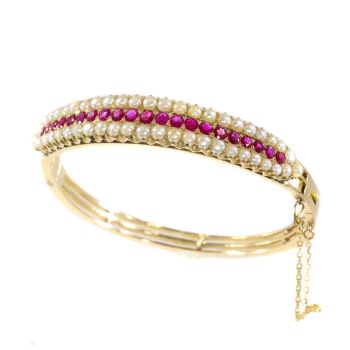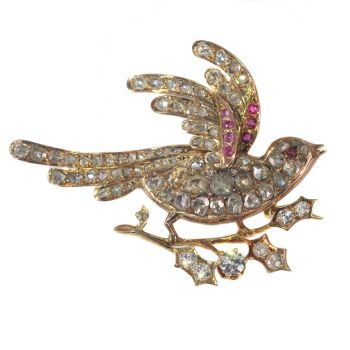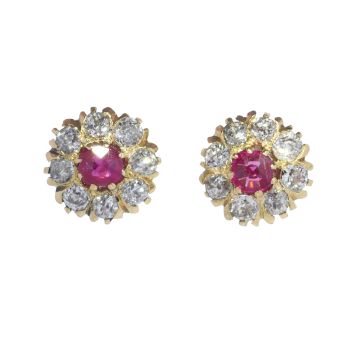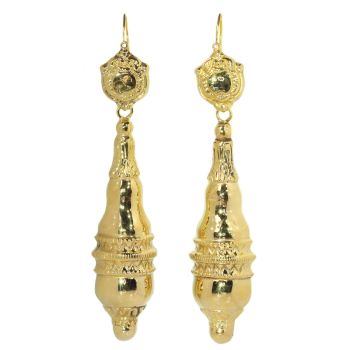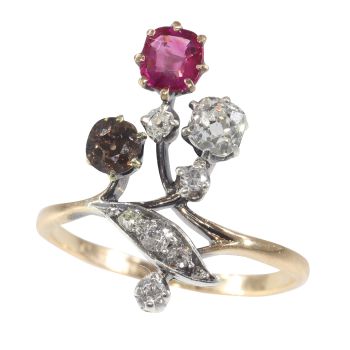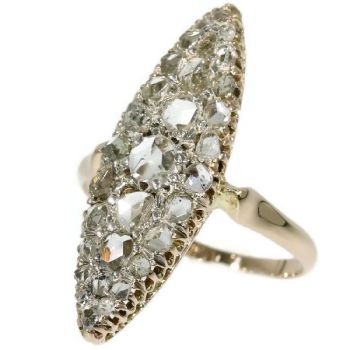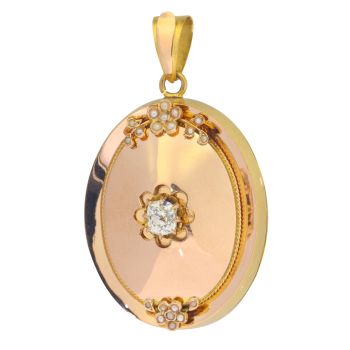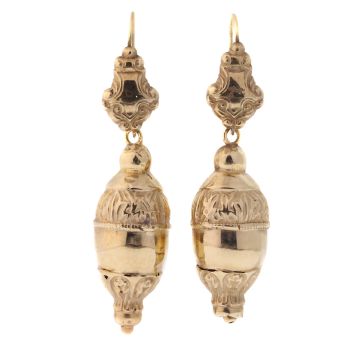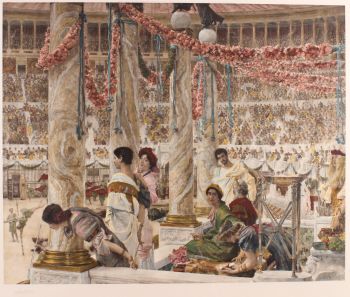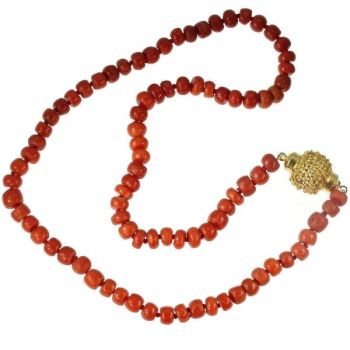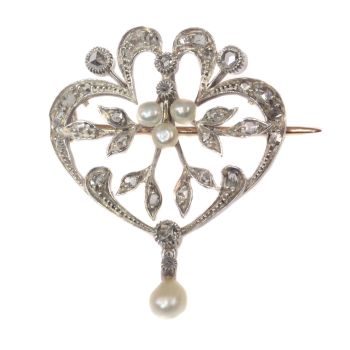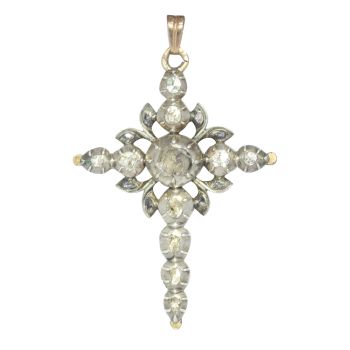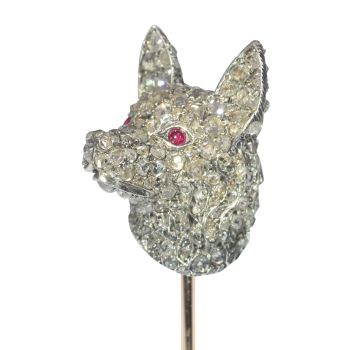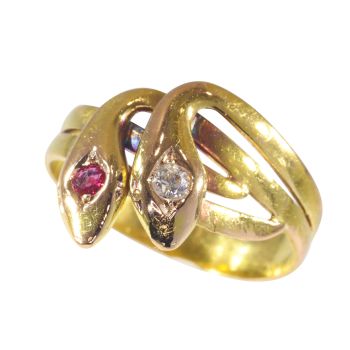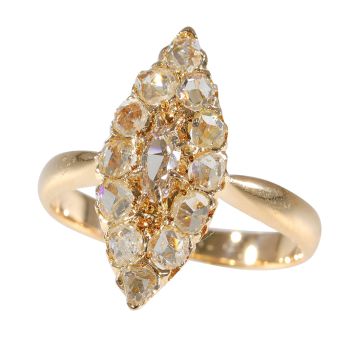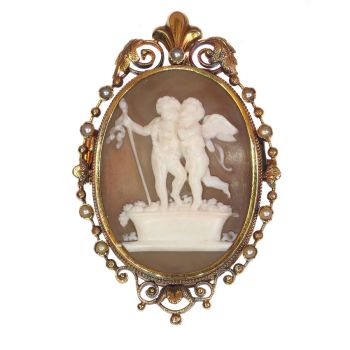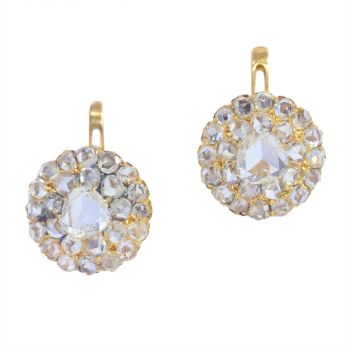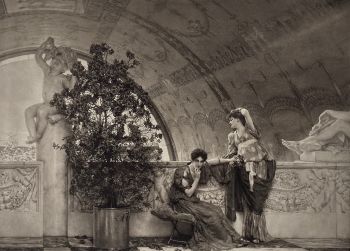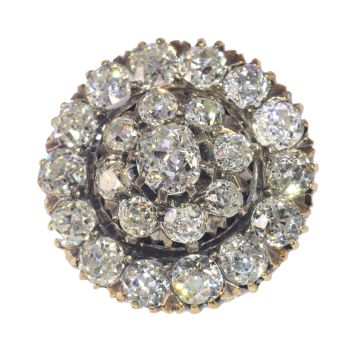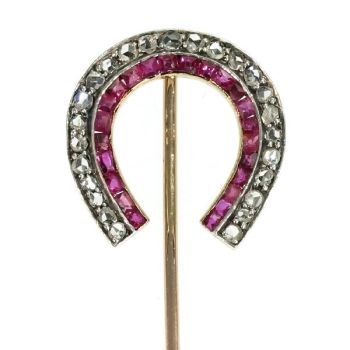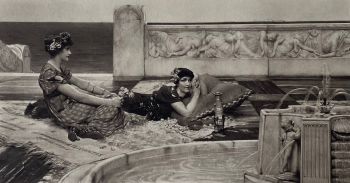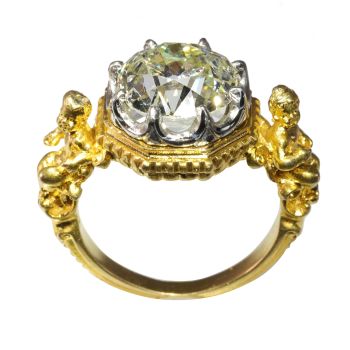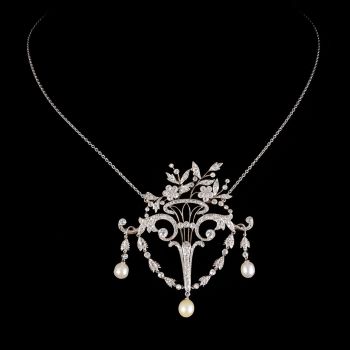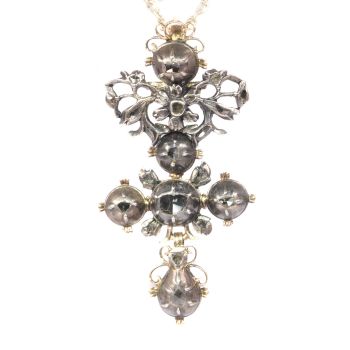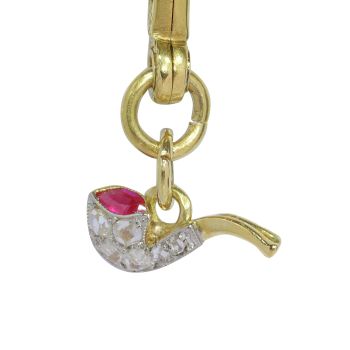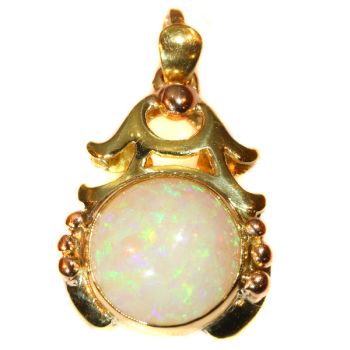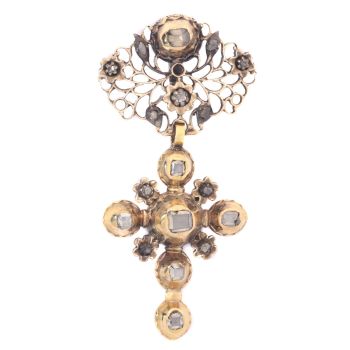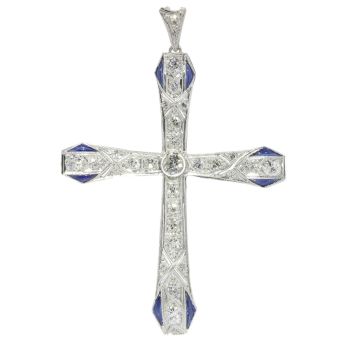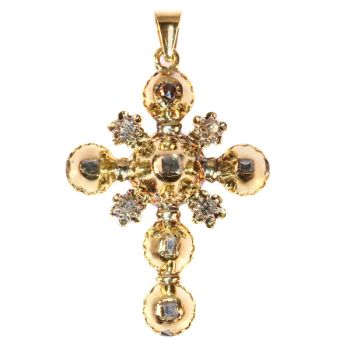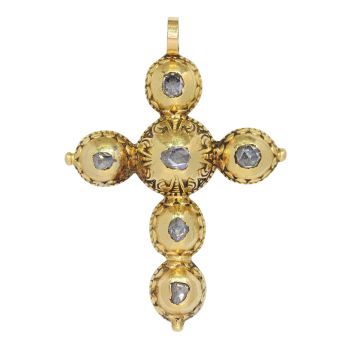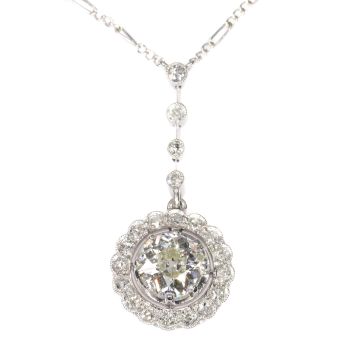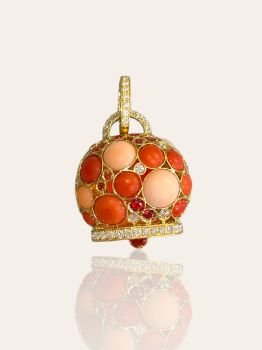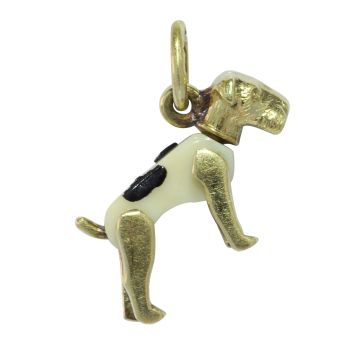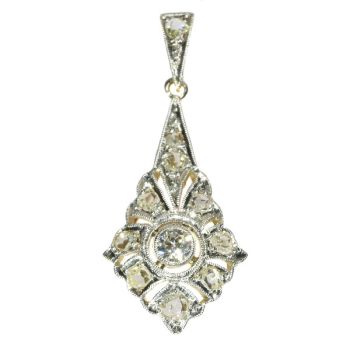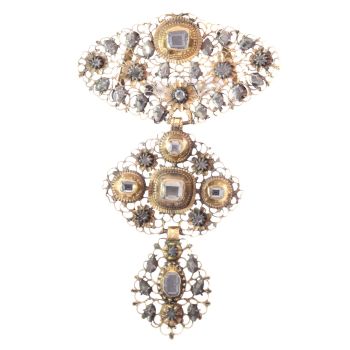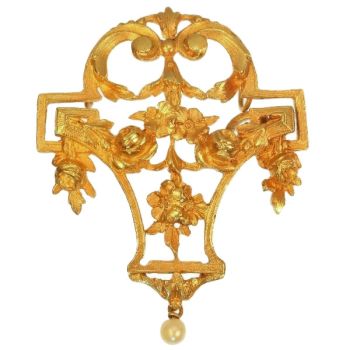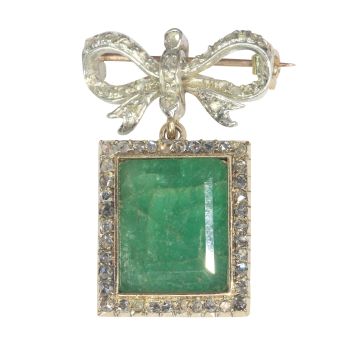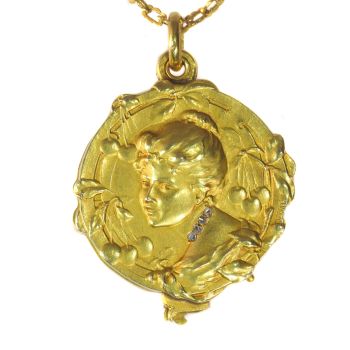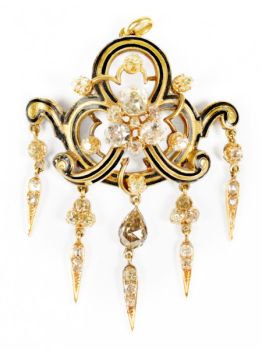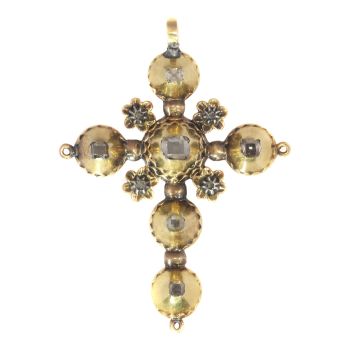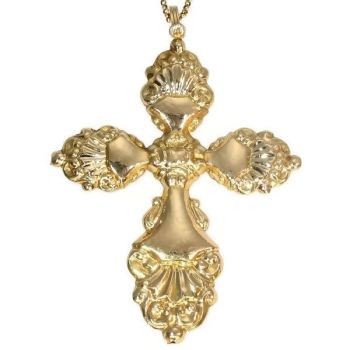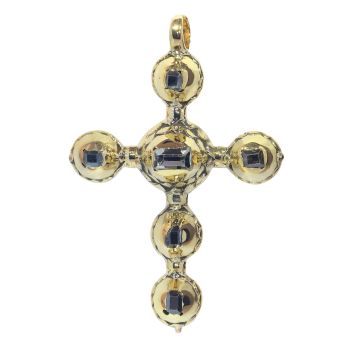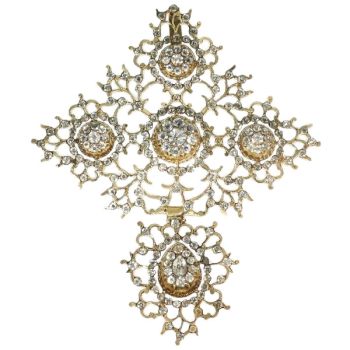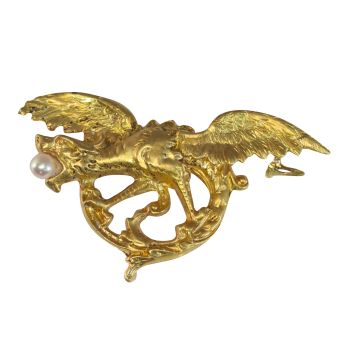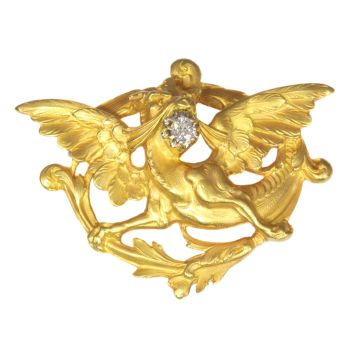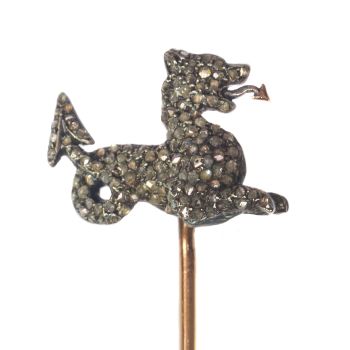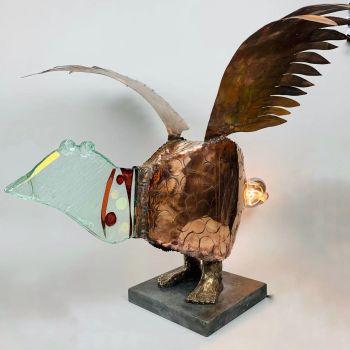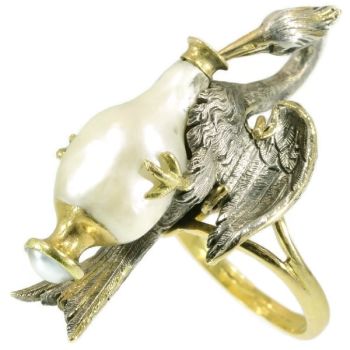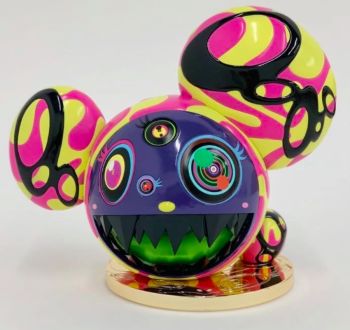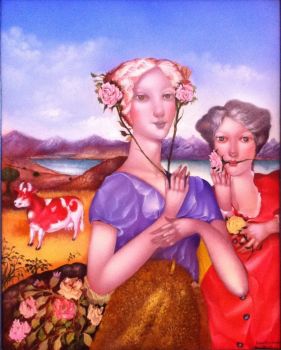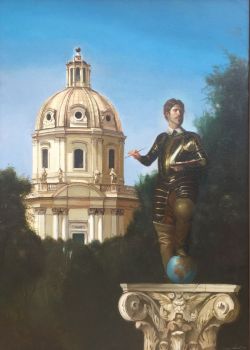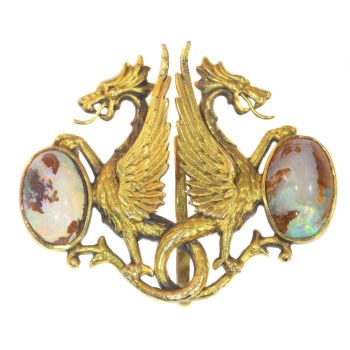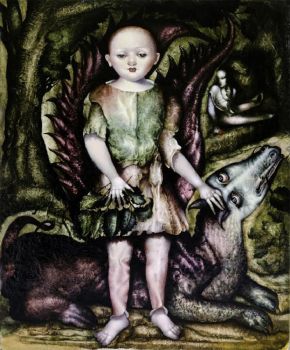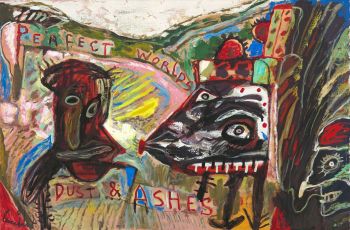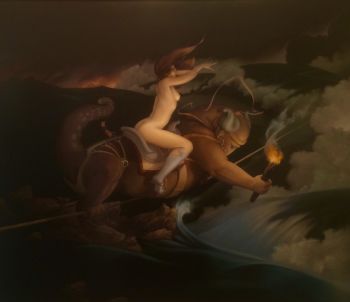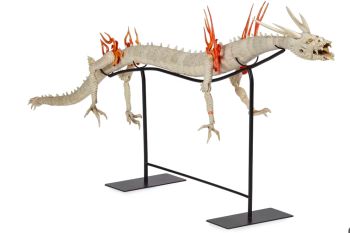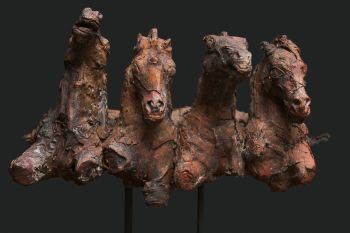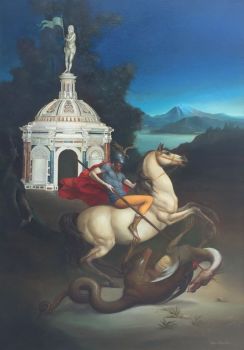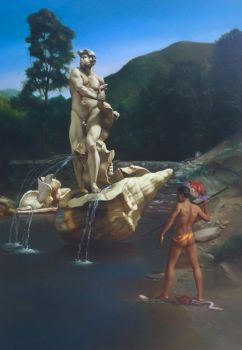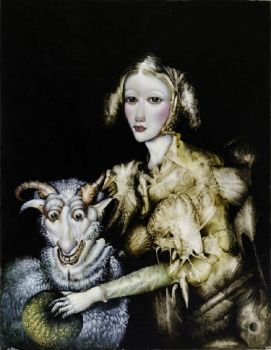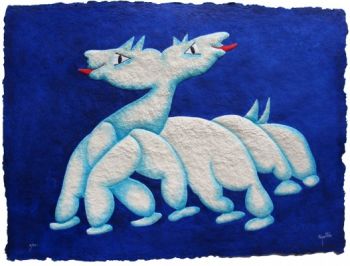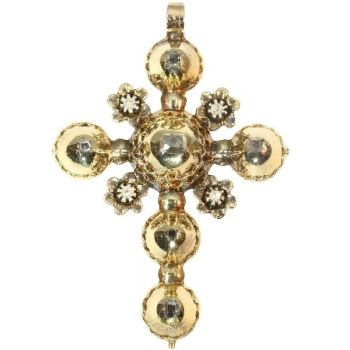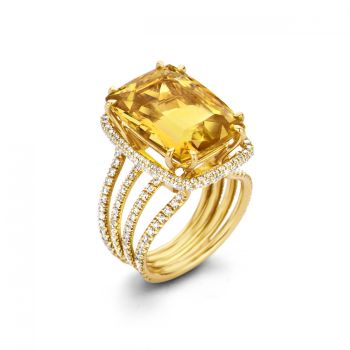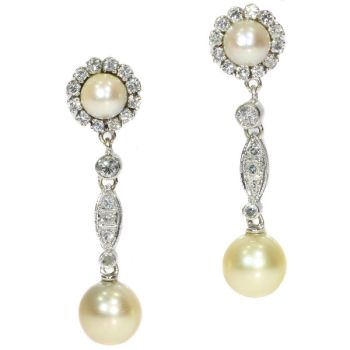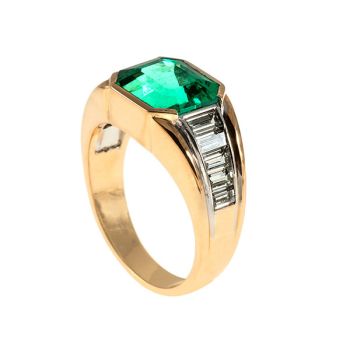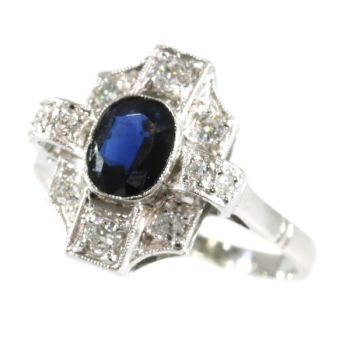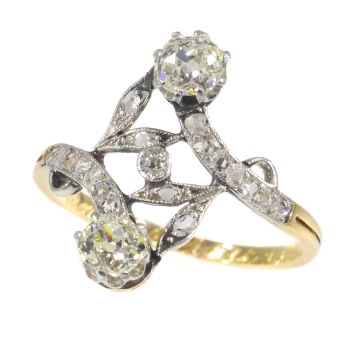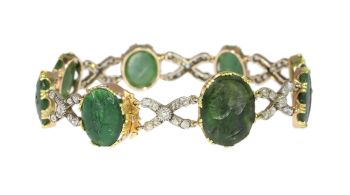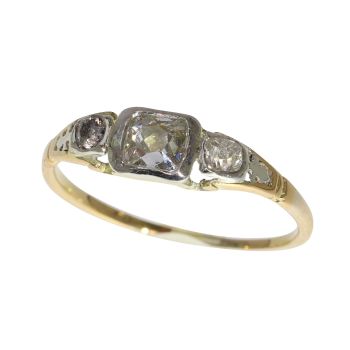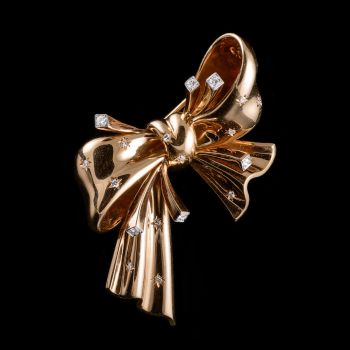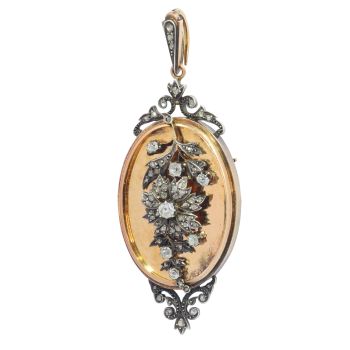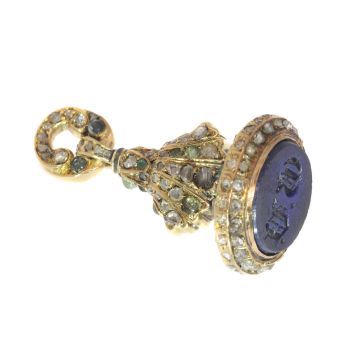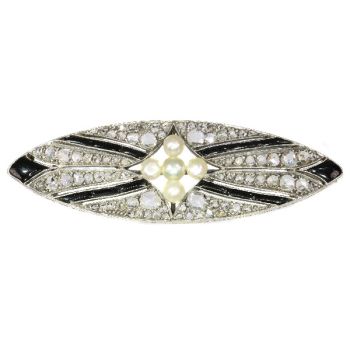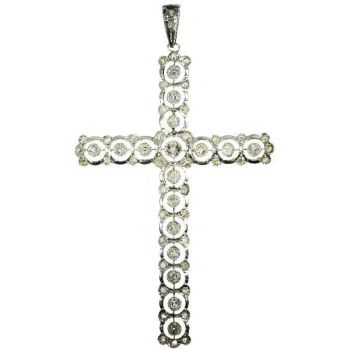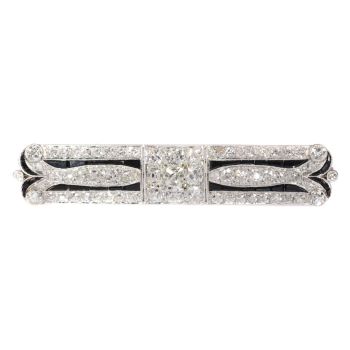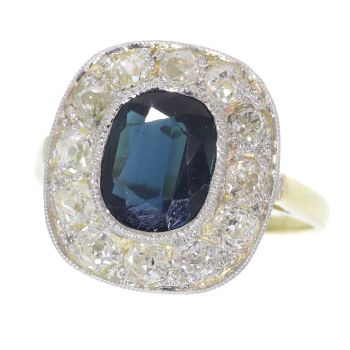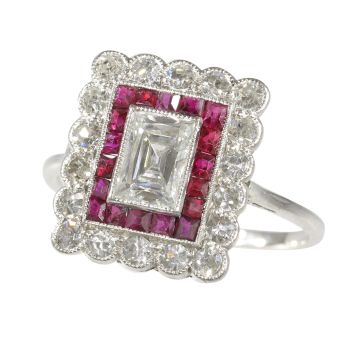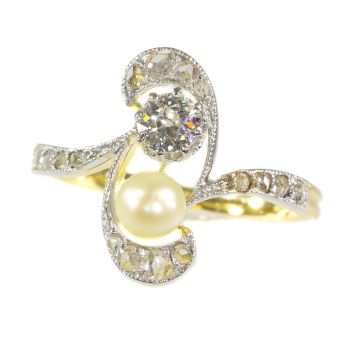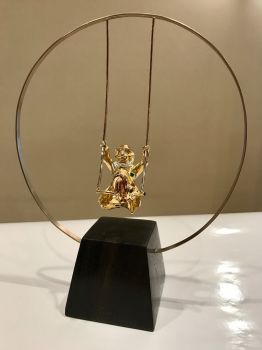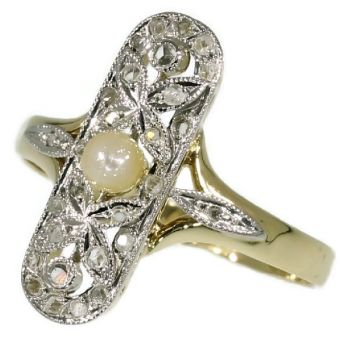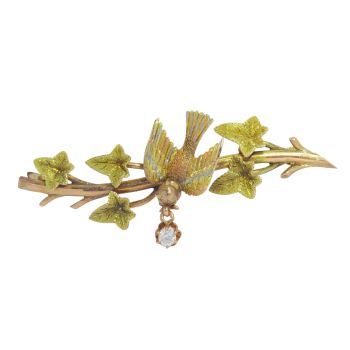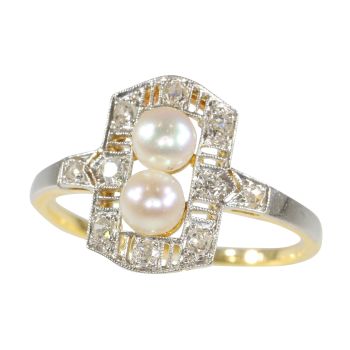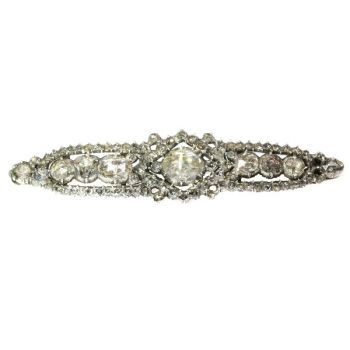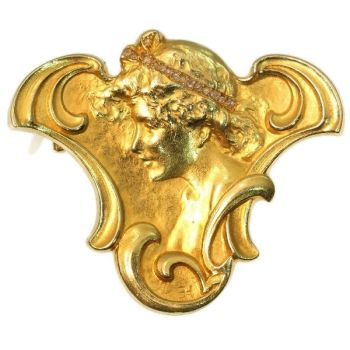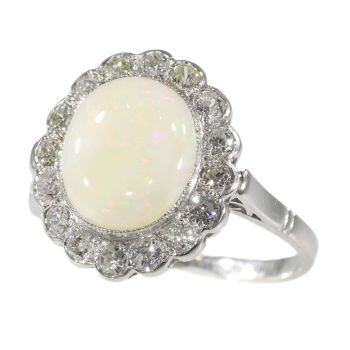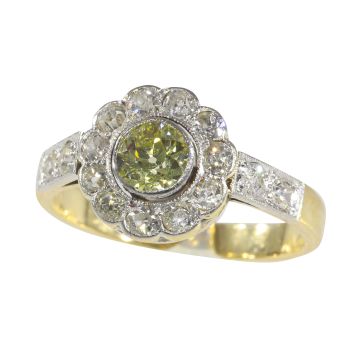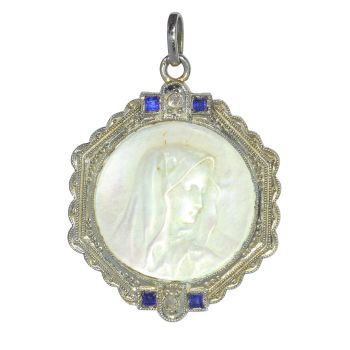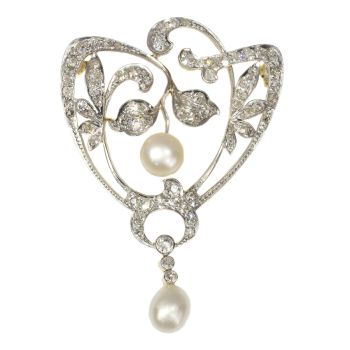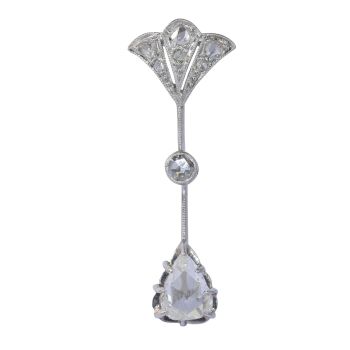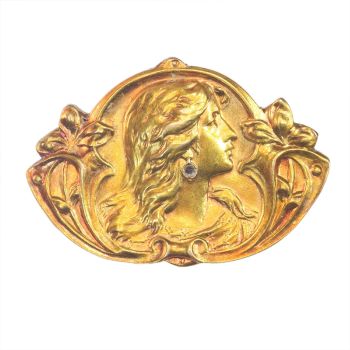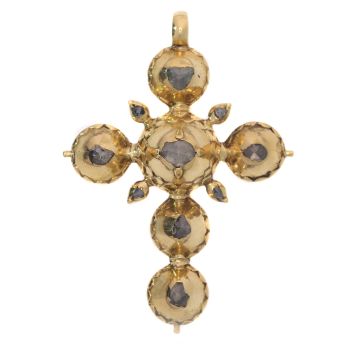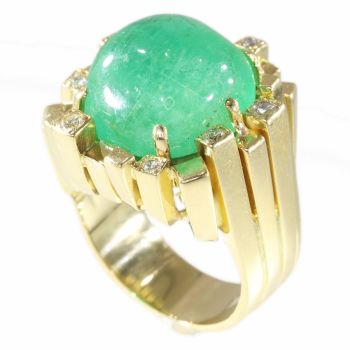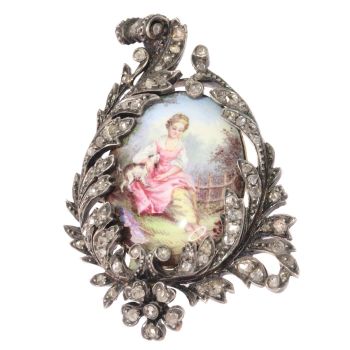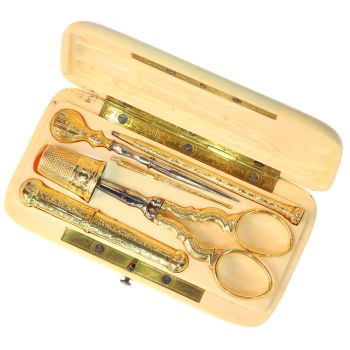Vintage antique late Victorian griffin brooch/pendant with old mine cut brilliant 1890
Artiste Inconnu
Adin Fine Antique Jewellery
- Sur l'oeuvre d'art
Antique jewelry object group
combined brooch-pendant
Condition
very good condition
more info on our condition scale
Country of origin
Although it does not carry any legible control marks we believe this to be of French origin.
Style
Late-Victorian - Victorian decorative arts refers to the style of decorative arts during the Victorian era. The Victorian era is known for its eclectic revival and interpretation of historic styles and the introduction of cross-cultural influences from the middle east and Asia in furniture, fittings, and Interior decoration.
Victorian design is widely viewed as having indulged in a regrettable excess of ornament. The Arts and Crafts movement, the aesthetic movement, Anglo-Japanese style, and Art Nouveau style have their beginnings in the late Victorian era.
See also: late-Victorian
more info on styles
Style specifics
- Medaillist Revival (in the The Belle Époque towards Art Nouveau) In 1886 Emile Olive (1853-1902) launched the medal-jewel with Vernier's Diane which resulted in the revival of medaillist's art in France.
Period
ca. 1890
Events & facts of this era, poetry of this era, fashion of this era.
Source of inspiration
Mythology
Theme
Griffin - The griffin, a strange and legendary creature, usually represented as being part eagle and part lion (and occasionally part serpent). As the lion was traditionally considered the king of the beasts and the eagle the king of the birds, the griffin was thought to be an especially powerful and majestic creature. Griffins are normally known for guarding treasure. In antiquity it was a symbol of divine power and a guardian of the divine. Most contemporary illustrations give the griffin forelegs like an eagle's legs with talons, although in some older illustrations it has a lion's forelimbs; it generally has a lion's hindquarters. Its eagle's head is conventionally given prominent ears; these are sometimes described as the lion's ears, but are often elongated (more like a horse's), and are sometimes feathered. The griffin motif is found in sculpture of the ancient Babylonians, Assyrians, Persians, and Romans; in beast allegories of the early Christians; and in Gothic architecture of the late Middle Ages. The griffin remains common in heraldry, representing strength and vigilance.
Material
18K yellow gold (touchstone tested)
more info on precious metals
Diamonds
One old European cut diamondwith an estimated weight of ± 0.24ct colour and clarity H/J, vs/si
All diamond weights, color grades and clarity are approximate since stones are not removed from their mounts to preserve the integrity of the setting.
All diamonds we offer are screened by the I.J.G.C. for whether they are natural or synthetic, and all diamonds in this jewel are 100% guaranteed to be natural.
Precious stones
One natural pearl
Birthstones
Diamond is the birthstone (or month stone) for April and pearl for June.
more info on birthstones
Hallmarks
Remains of what we think is the French control mark for 18K gold representing a horse's head that was in use in France from about 1838.
more info on hallmarks
Dimensions
width 6,82 cm (2,69 inch)
see picture with a ruler in millimeters and inches
Weight
30,70 gram (19,74 dwt)
Adin Reference Nº
22152-0267
Copyright photography
Adin, fine antique jewellery
Additional information
our latest acquisitions
jewelry glossary
wall of fame
visit us in Antwerp
subscribe to our mailinglist
- Sur l'artiste
Il peut arriver qu'un artiste ou un créateur soit inconnu.
Certaines œuvres ne doivent pas être déterminées par qui elles sont faites ou elles sont faites par (un groupe d') artisans. Les exemples sont des statues de l'Antiquité, des meubles, des miroirs ou des signatures qui ne sont pas claires ou lisibles, mais aussi certaines œuvres ne sont pas signées du tout.
Vous pouvez également trouver la description suivante :
•"Attribué à …." A leur avis probablement une oeuvre de l'artiste, au moins en partie
•« Atelier de …. ou « Atelier de » À leur avis, une œuvre exécutée dans l'atelier ou l'atelier de l'artiste, éventuellement sous sa direction
•« Cercle de… ». A leur avis une oeuvre de la période de l'artiste témoignant de son influence, étroitement associée à l'artiste mais pas forcément son élève
•« Style de … ». ou "Suiveur de ...." Selon eux, une œuvre exécutée dans le style de l'artiste mais pas nécessairement par un élève ; peut être contemporain ou presque contemporain
•« Manière de… ». A leur avis une oeuvre dans le style de l'artiste mais d'une date plus tardive
•"Après …." A leur avis une copie (quelle qu'en soit la date) d'une oeuvre de l'artiste
•« Signé… », « Daté… ». ou « Inscrit » À leur avis, l'œuvre a été signée/datée/inscrite par l'artiste. L'ajout d'un point d'interrogation indique un élément de doute
• "Avec signature ….", "Avec date ….", "Avec inscription …." ou "Porte signature/date/inscription" à leur avis la signature/date/inscription a été ajoutée par quelqu'un d'autre que l'artiste
Êtes-vous intéressé par l'achat de cette oeuvre?
Artwork details
Related artworks
Artiste Inconnu
François-Théodore Legras – Tall “Fleurs de Pommier” apple blossoms vase1900 - 1909
Prix sur demandeAntiques Emporium
1 - 4 / 12Lawrence Alma-Tadema
"Caracalla and Geta: Bear Fight in The Coliseum, AD 203" 1907
Prix sur demandeGallerease Selected
 Sélectionné par
Sélectionné parDanny Bree
1 - 4 / 24Fontana
Broche-pendentif panier de fleurs1900 - 1905
Prix sur demandeAns Hemke-Kuilboer Juwelier & Antiquair
1 - 4 / 24- 1 - 4 / 24
Artiste Inconnu
Bracelet en diamant du XVIIIe siècle avec intailles vieilles de 2000 ans1790
€ 23.000Adin Fine Antique Jewellery
 Sélectionné par
Sélectionné parDanny Bree
1 - 4 / 24- 1 - 4 / 12

